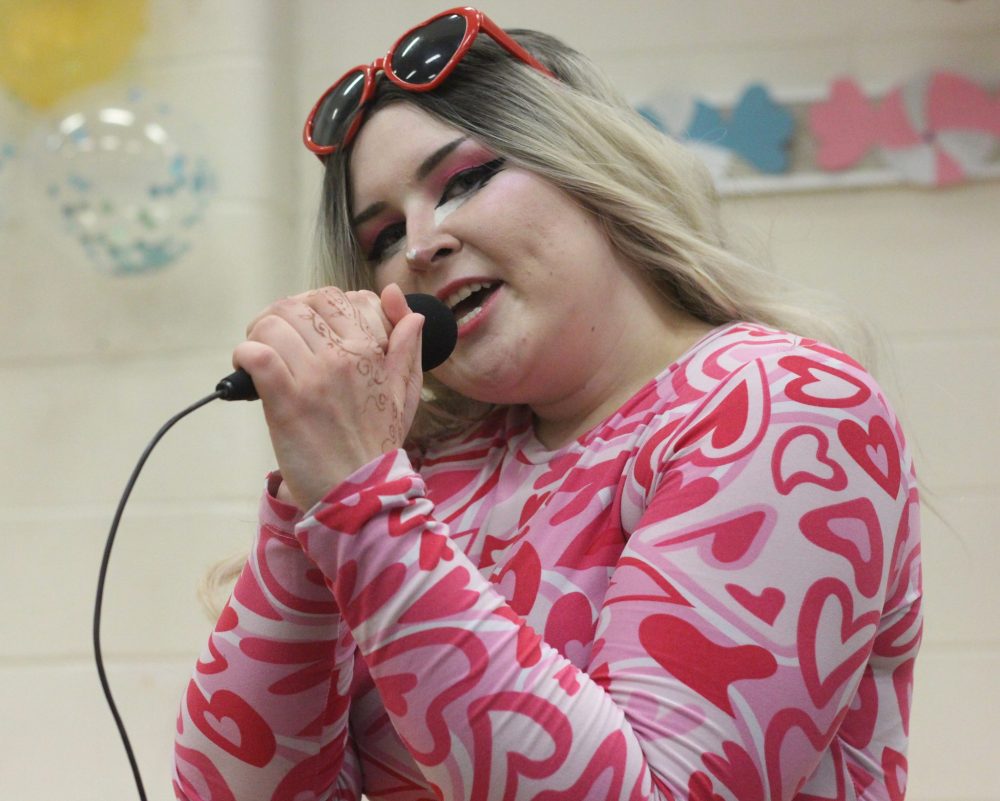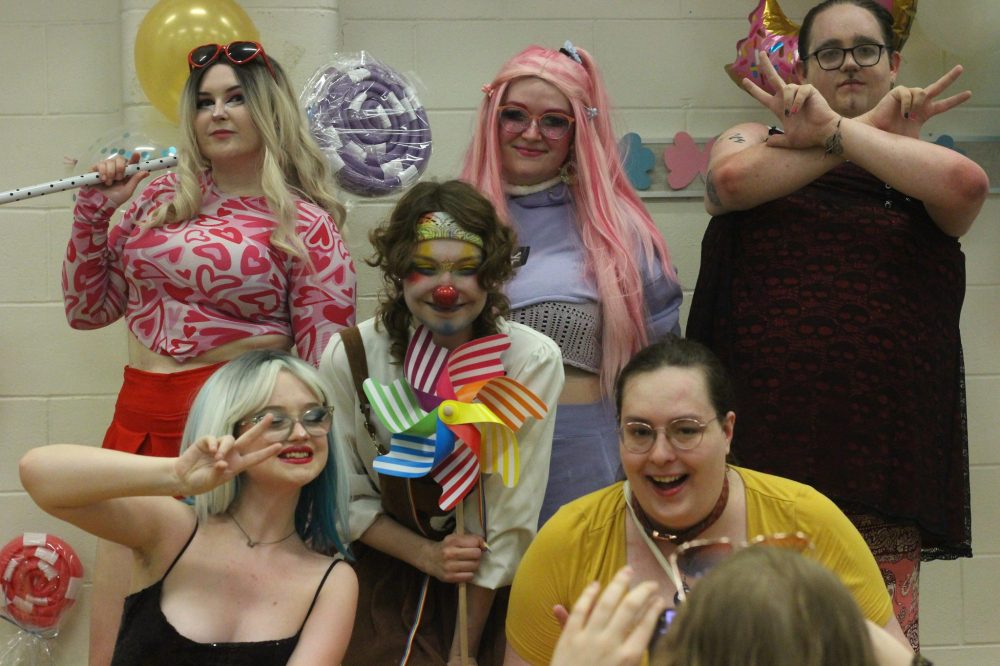Brunch service with a side of drag queens
Advertisement
A sold-out event with over 90 people and five drag queens packed in a tight hall to celebrate the Drag Brunch’s third year at Steinbach’s United Church on June 21.
Leading up to the event, the location was kept private due to safety concerns for the 2SLGBTQIA+ community. The first Drag Brunch event had protestors outside of the building.
Drag is a performance art combining lip syncing, dancing, personas, and over-the-top clothing and makeup. Drag queens are performers who partake in drag, often with a specific persona and name.
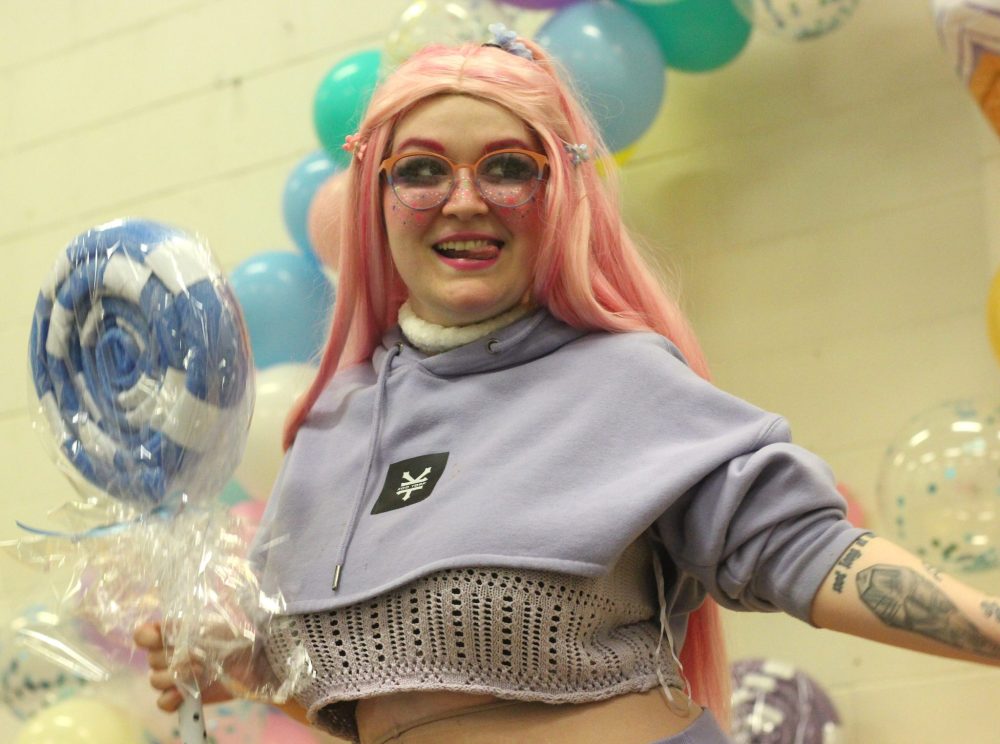
Most of the queens are using their drag names to protect their identity and safety.
Jesse, whose drag name is Spazpher, debuted for the first time on Saturday.
“Growing up in Steinbach if you were to say that you were gay, queer, or non-binary or anything like that, you’d be punched in the face. That’s just how it was. And I don’t want that to happen to any of our kids,” said Spazpher, who goes by they/them pronouns. “Queer people aren’t hiding, and we’re here to be proud and happy and bring community.”
Spazpher said small communities need more drag queens and shows.
For Salem, who uses he/him pronouns, drag is a way to honour his survival.
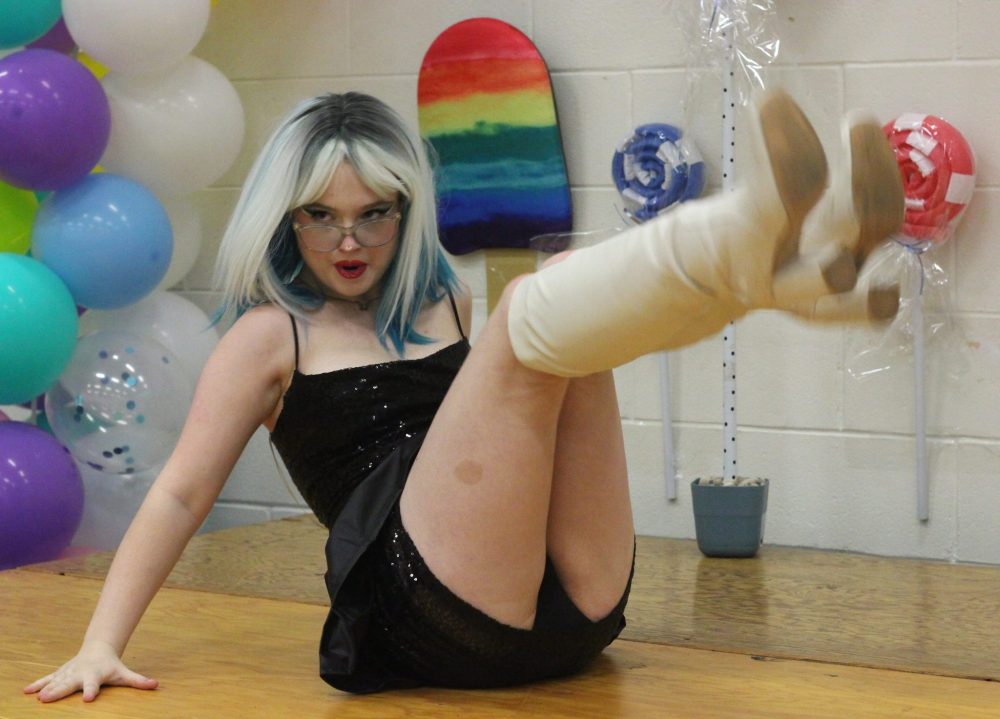
“I want to honour the person I was. The person who stayed alive and got me here to the point where I could do this. And so, I could show the kids here,” said Salem, 23.
He started questioning his gender when he was around 12 years old, but “shoved it down.”
“One day, before school, I was getting ready. I put all of my sports bras on. I put my hair tucked into a hat. I put socks down my pants for a little bulge. I looked in the mirror, and I started crying, just sobbing. I wanted to look like this all the time. This is who I want to be,” he said.
Salem has been doing drag for two years and has attended every Drag Brunch in Steinbach.
There were police outside the Steinbach United Church for the first year of the Drag Brunch event to protect the 2SLGBTQIA+ community. There were also protestors outside.
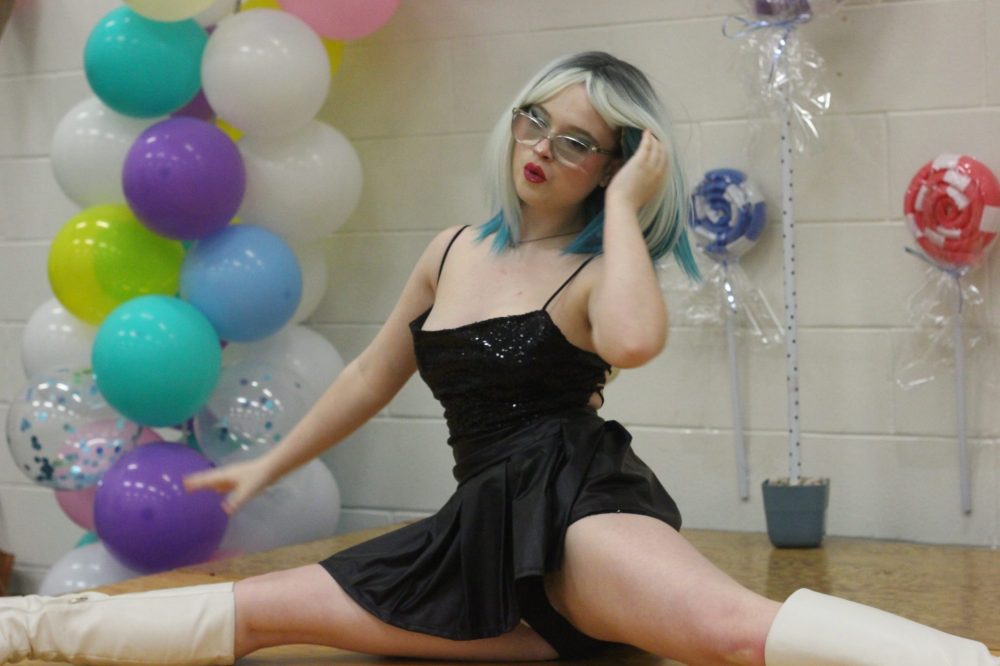
Many of the people felt uncomfortable with police and decided not to have them in the following year.
“There are so many people in the queer community that are uncomfortable around police officers. In fact, a lot of the queens we had last year were uncomfortable with it,” said Angelica Brunger, organizer.
Despite hostility from protestors, the Drag Brunch event continues to grow each year. In its first year around 50 people came.
“It’s hated on purely because it’s queer,”said Lou Ferguson, whose drag name is Miss Pocket. “It was started by black drag artists, black gay men, so that kind of prejudice and once you get to see past of it and you come to an event like this and you get to see the smiles on people’s faces, you can really go past that and find the beauty in it.”
A lot of Ferguson’s influence came from RuPaul’s Drag Race, a reality TV show where drag queens compete with each other in challenges.
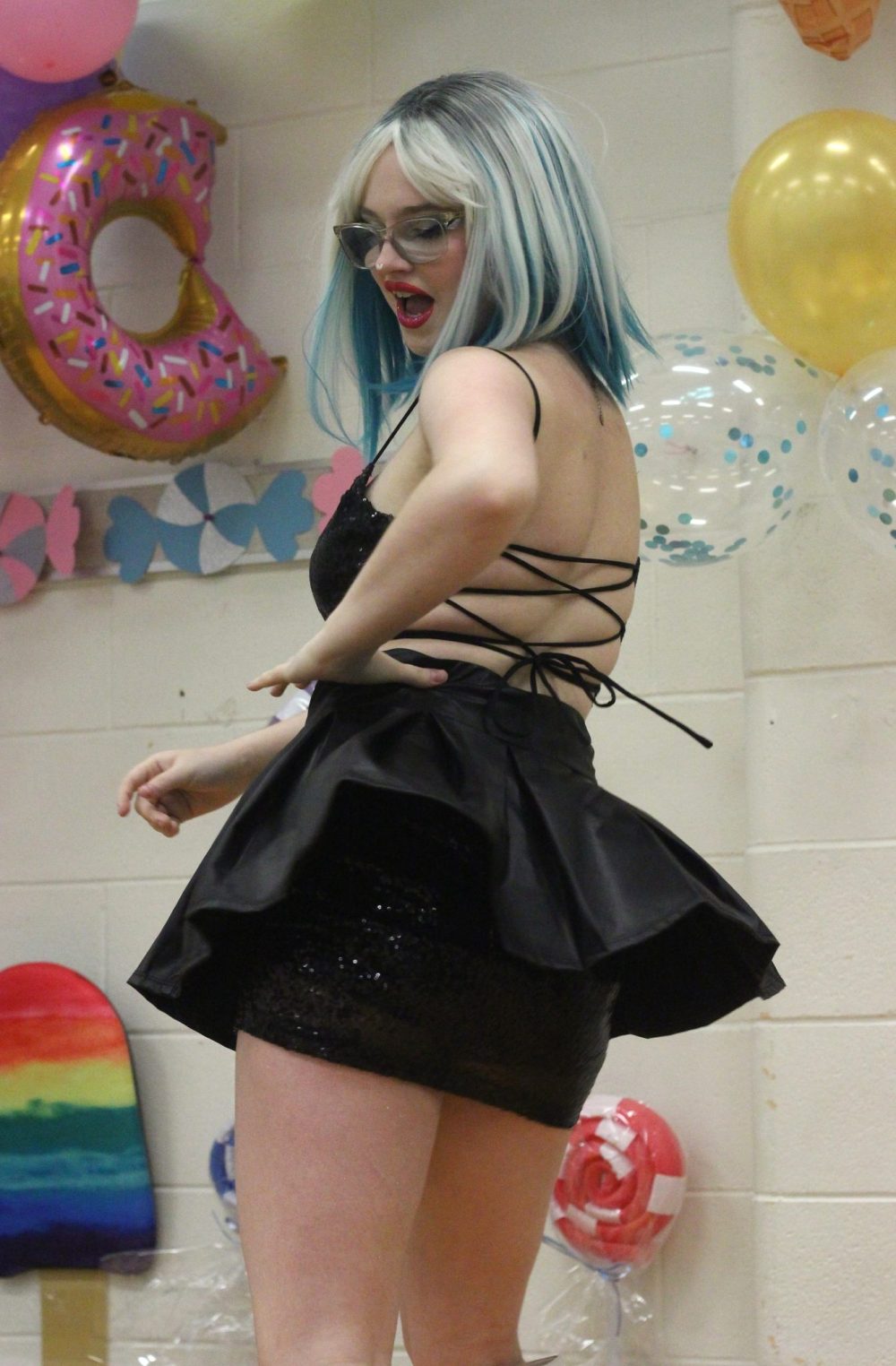
Ferguson, who goes by they/them pronouns, said drag is a form of worship.
“There’s something so freeing about it. Gay bars are like church to me, so going there and taking place in a kind of spiritual worship of my identity is just incredible,” they said.
Ferguson has a lot of dance experience and uses it to choreograph their performances.
“Drag makes me feel that you can do anything you want to be, that you don’t have to fit into a certain box,” said Valkyra, who has been performing for a year. “It means an escape from my normal life.”
Last year, they dislocated their kneecap after stepping into a hole on the ground while performing.
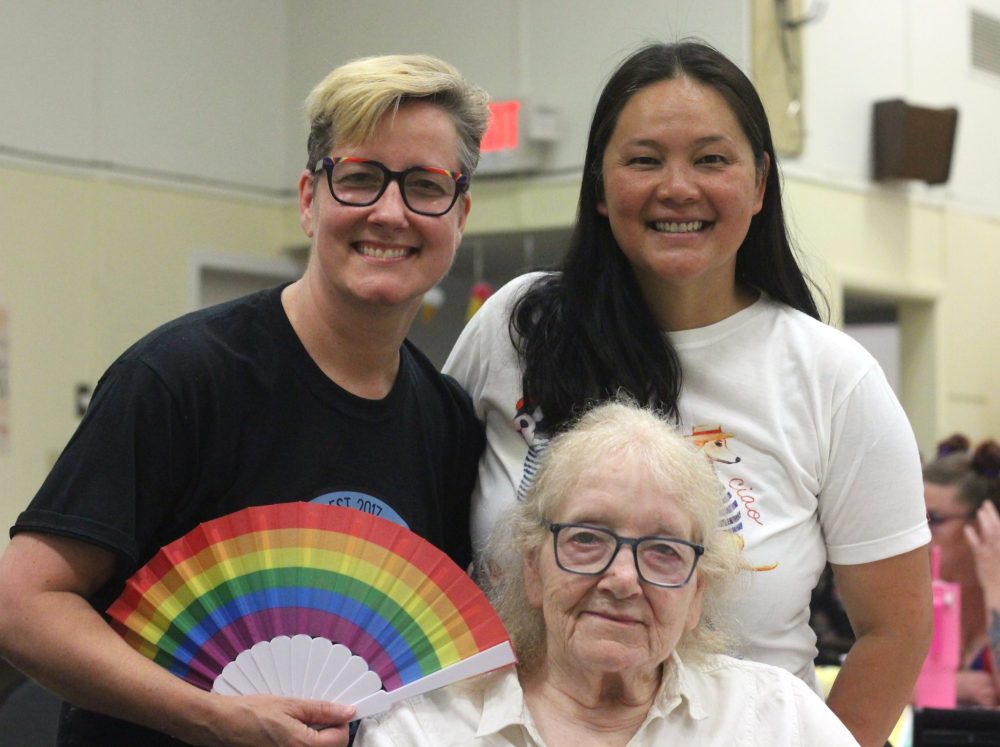
“One of my goals in life is to be happy,” Valkyra said.
